Why Nam Radio is betting big on vocal training
It is easy to turn on the radio and assume that famous singers have always and will always sound incredible. But the reality is that even the best singers out there have experienced vocal faults at some point in the career. Last year, well-known Nigerian singer Tekno indefinitely suspended his performances after temporarily damaging his vocal cords due to excessive strain during live concerts. In April, British singer Sam Smith cancelled two performances in Cape Town, South Africa, also due to vocal strain.
 Tanzanian voice coach and author Tony Joett.
Tanzanian voice coach and author Tony Joett. Nam Radio founder and CEO Collin Mogagabe.
Nam Radio founder and CEO Collin Mogagabe.
But Tanzanian voice coach and author Tony Joett says that when artists damage their vocal cords, the problem is often not down to how often they sing but rather the way they sing.
With a career of teaching voice for more than 10 years, Joett says many African musicians do not take vocal coaching seriously. He believes that as much as surgery has proven to restore damaged vocal cords, it does not always make for a permanent fix, unless the cause of the problem is addressed first.
“Artists need to be educated about the importance of voice training before they can even begin to understand how to take care of the voice,” he says. “Before award-winning Tanzanian singer Vanessa Mdee got into the music industry, she asked me to train her, and she continues to train to this day because she values what the training has done for her voice and her career. She has experienced the incredible benefits of voice training and has also learnt how to maintain her voice.”
He says singers in Western countries take vocal training more seriously compared to their African counterparts. “In any territory, if the standards are low, in that top-selling artists can’t sing, it is highly unlikely that a singer will bother to take voice lessons."
And Joett believes that if African artists begin to engage in vocal training, the difference will be heard even by their fans, whose "allegiance would likely begin to veer toward the professionally trained vocal artists”, thus improving the standards for the music industry as a whole.
In efforts to raise the bar in Africa, Joett has collaborated with Namibia’s Nam Radio on an artist development programme called Talent Showcase Africa (TSA) and its immediate spinoff, Vocals Quick Fix Africa.
TSA seeks to provide essential training that will equip artists with the skills and knowledge to forge lasting careers.
“When it comes to singing, Africa has got more talent than you can ever begin to imagine," Joett says. "But the problem is that the majority of mainstream artists on the continent are untrained singers. Thanks to auto-tune, many of them have been able to build successful careers regardless of their inability to hold a simple note.”
He says the programme not only gives singers a strong voice but also makes it easier for producers to work with musicians, reducing the amount of time and money spent on recording sessions.
Nam Radio founder and CEO Collin Mogagabe says the TSA concept was created out of a need to “develop skills of African artists and create awareness of their talent."
“I also think that it will create a sense of belonging, give them a less judgmental platform and increase the artist’s opportunities to go on mainstream platforms,” he said.
The TSA programmes include special speech-level vocal exercises for musicians who are preparing to record in the studio as well as those who are about to perform live. For musicians anywhere in Africa and the diaspora, sessions can be conducted via Skype and will run for one hour each, with the complete Vocals Quick Fix Africa programme comprising a total of four hours.
“We have created something that is tailored to the mindset of African singers: a programme that doesn’t involve much time and requires absolutely no long-term commitment from the artist whatsoever. It is what it is – a vocal quick fix for pre-studio recording sessions and live gigs. Plain and simple. This, I feel, should work well for Africa.”
Joett says TSA understands that support is crucial for the programme to be a success. Therefore, a social media app will be available to provide musicians and producers with training packages and an opportunity to collaborate on projects.
“TSA provides quality assurance by delivering trained talent, and we’re building a network of music professionals such as producers, artist managers and music promoters across the globe who will find polished gems on the TSA platform, to nurture and develop them into the stars of tomorrow,” he said.
The programme will be launched in June 2019 with the ‘Think You Can Sing? Show Us What You’ve Got!’ programme, which is a variation on the broader TSA agenda. The programme will start with auditions in Windhoek, Namibia, before it goes to other African cities. Participants who excel during the auditions will be enrolled in the TSA programme and will be awarded a copy of Joett’s 101 Letters from a Vocal Coach: A Collection of Helpful Tips and Articles for Singers book along with exclusive voice-training audio products.
For more information, visit the Talent Showcase Africa page.




























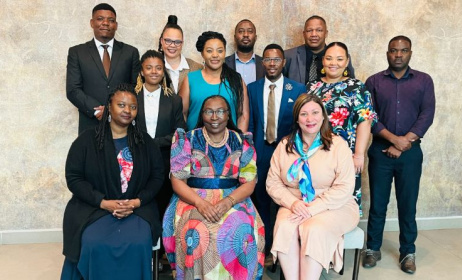
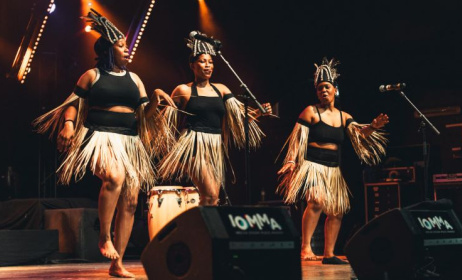
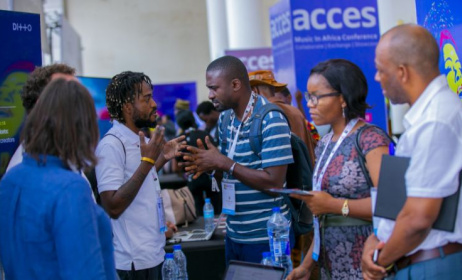

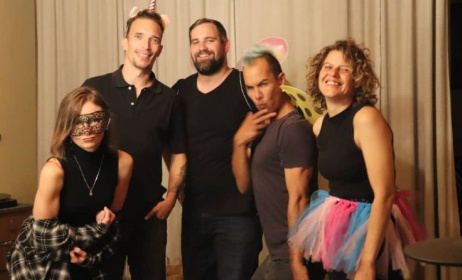

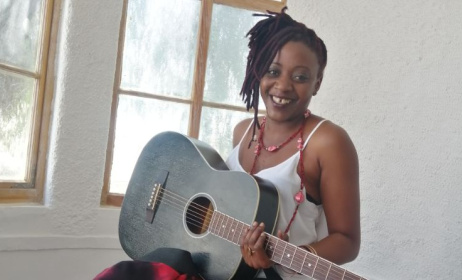
Comments
Log in or register to post comments